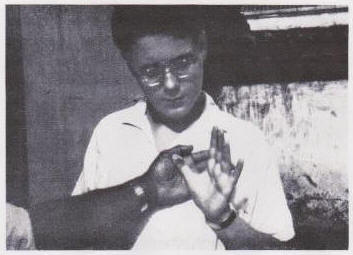Highlights
...vaccines...should be used in conjunction with professional standards of
medication ... Infection Control
Healthcare providers should follow Standard Precautions to minimize the risks of
spreading disease during the administration of vaccines.
•
Handwashing - Handwashing is critical to prevent the spread of illness and
disease. Hands should be washed thoroughly with soap and water or cleansed with
an alcohol-based waterless antiseptic before vaccine preparation,
between
patients, and any time hands become soiled, e.g. diapering or cleansing
excreta.
•
Gloves - Occupational Safety and Health Administration (OSHA) regulations do not
require gloves to be worn when

administering vaccines unless the person
administering the vaccine is likely to come into contact with potentially
infectious body fluids or has open lesions on the hands. If gloves are worn,
they should be changed between patients. Gloves will not prevent needlestick
injuries. Any needlestick injury should be reported immediately to the site
supervisor, with appropriate care and follow-up given as directed by local/state
guidelines.
Fig 1 depicts a medic with bleeding blisters on his hands from a
multiuse jetgun injector..•
Equipment Disposal - Used needles should not be recapped, cut, or detached from
the syringes before disposal. All used syringe/needle devices should be placed
in puncture proof containers to prevent accidental needlesticks and reuse. Empty
or expired vaccine vials are considered medical waste and should be disposed of
according to state regulations.